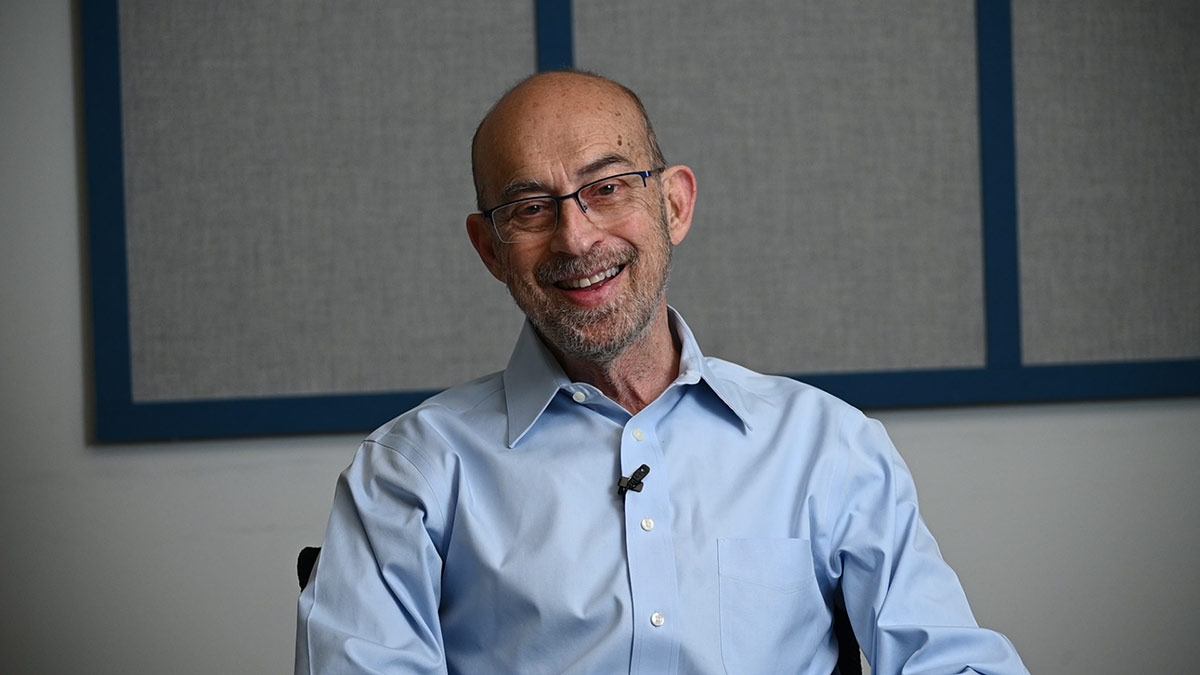Aspirin, Fish Oil, and Atrial Fibrillation - 3 New Studies Answer Questions

The American College of Cardiology completed their 2021 scientific sessions, where many research teams presented trial results. Dr. Steve Nissen, cardiologist and Chief Academic Officer, Heart, Vascular & Thoracic Institute, presents the summaries of three trials answering the following questions:
Left Atrial Appendage Occlusion Study (LAAOS III): If you have atrial fibrillation and undergoing heart surgery – should you have your left atrial appendage (LAA) closed during surgery?
ADAPTABLE (Aspirin Dosing: A Patient-Centric Trial Assessing Benefits and Long-Term Effectiveness): What is the best dose of aspirin to prevent future cardiac events?
Secondary Analysis of STRENGTH Trial: Is fish oil beneficial to reduce cardiovascular risk?
Subscribe: Apple Podcasts | Buzzsprout | Spotify
Aspirin, Fish Oil, and Atrial Fibrillation - 3 New Studies Answer Questions
Podcast Transcript
Announcer:
Welcome to Love Your Heart brought to you by Cleveland Clinic's Sydell and Arnold Miller Family Heart, Vascular, and Thoracic Institute. These podcasts will help you learn more about your heart, thoracic, and vascular systems, ways to stay healthy, and information about diseases and treatment options. Enjoy.
Steven Nissen, MD:
I'm Dr. Steve Nissen, and I'm a cardiologist at the Cleveland Clinic. We just concluded one of our major meetings of the year, the American College of Cardiology meeting, and there were several studies presented that are of considerable interest to patients. In one of them, cardiac surgeons looked at the effect of occluding, that is, stitching together the appendage on the left atrium, one of the upper chambers of the heart, at the time of cardiac surgery. Now this appendage is known to be associated with the formation of clot and, later on, a stroke. What they found is that if they sewed up that appendage on the left atrium, there was a one-third reduction in the subsequent risk of stroke or other phenomena where a clot in the heart goes to an important organ. So if you're having cardiac surgery, you may want to talk to your surgeon about whether occluding that left atrial appendage is a good idea.
Steven Nissen, MD:
Another study was one looking at doses of aspirin. It compared an 81-milligram dose, that's the baby aspirin that a lot of people take, with a larger 325-milligram. That's the full-sized aspirin tablet. What they found was there was no difference in outcome. In this case, more aspirin wasn't better for patients that have to take aspirin to prevent cardiac events. The lower dose of aspirin seemed to work every bit as well as the higher dose of aspirin.
Steven Nissen, MD:
Now we presented the results of our study of fish oil. This has become very controversial because many studies have showed no benefit of fish oil. A single study known as REDUCE-IT showed the benefit of a specific type of fish oil. And the question is, how do we explain all of that? We did a study known as The STRENGTH Trial, where we gave high doses of fish oil, and we saw no benefit. We subsequently looked at the study to see if the people that got the highest boost in fish oil levels in the blood whether they had any benefit, and we still saw no benefit.
Steven Nissen, MD:
So we think that actually, the results of REDUCE-IT cannot be easily by the levels of fish oil in the blood. We think the more likely explanation is that our trial STRENGTH used corn oil as the placebo. You have to have an identical placebo in a trial like this. Something that is inert. We used corn oil, which doesn't do anything, and the REDUCE-IT trial used mineral oil. And that mineral oil raised a number of markers associated with cardiovascular risk, including the bad cholesterol, LDL, and a measure of inflammation C-reactive protein.
Steven Nissen, MD:
So our conclusion is that REDUCE-IT's probably a false positive study, that it really didn't show a benefit of fish oil, but it really showed harm from the placebo that was used. And more important lessons here. This is an evolving area. There is more research to be done. But we don't think there's, at this point, a compelling reason to be taking fish oil, certainly not over-the-counter fish oil, which contains very little of these things.
Steven Nissen, MD:
Now there's one other issue, and that is that both of these trials showed an increase of atrial fibrillation with fish oil. So if you have a history of atrial fibrillation or at risk for atrial fibrillation, fish oil is probably not a good idea. Thank you for watching.
Announcer:
Thank you for listening. We hope you enjoyed the podcast. We welcome your comments and feedback. Please contact us at heart@ccf.org. Like what you heard, subscribe wherever you get your podcasts or listen at clevelandclinic.org/loveyourheartpodcast.

Love Your Heart
A Cleveland Clinic podcast to help you learn more about heart and vascular disease and conditions affecting your chest. We explore prevention, diagnostic tests, medical and surgical treatments, new innovations and more.


